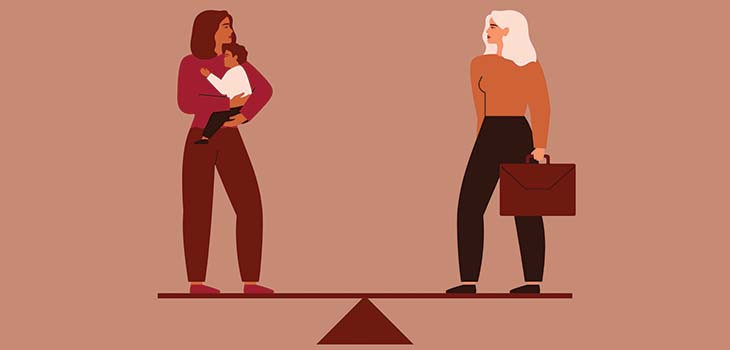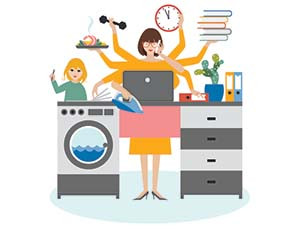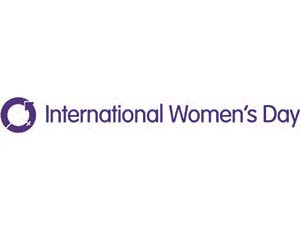*/

Maintaining a career at the Bar and having a family can be a huge challenge. Prime responsibility for childcare falls particularly on women; as of March 2022, 26% of female and 10% of male self-employed barristers said they were primary carers.
The Bar Council has created a new parental leave guide, updated the Family Career Breaks Guide and is encouraging chambers to take positive action to help new parents. The guidance is tailored to help barristers rebuild their practice after an extended career break. We also offers a mentoring scheme as a form of practical support and assistance.
At the self-employed Bar, extended periods without earning can very quickly make it difficult to remain in practice. Some can live off deferred income (aged debt) while on maternity or parental leave, but then struggle on their return. Waiting for payments for work, paying childcare costs and other work-related expenses like travel, hotel, or other bills all must be paid while rebuilding a practice and during a time when a barrister may not be earning very much.
Deferred income can often be quickly exhausted, and then a barrister is left financially exposed. In 2020, the Chancery Bar Association published Voices of Women at the Chancery Bar in which contributors talked about the impact of taking maternity leave on their confidence. (See Marcia Shekerdemian KC’s Counsel article here.)
The Bar loses too many talented barristers in this way. Balancing a career as a barrister and parenthood is often put down to practice area, luck, the availability of a partner as the primary carer, and other forms of support available.
Barristers will often talk about the impact of chambers, other barristers, clerks, and colleagues who influence their experience of bringing up children at the Bar. Supportive chambers make it possible and unsupportive chambers effectively force new parents (usually women) out of the profession or to a different chambers.
Chambers need to ensure that maternity and parental leave policies, and associated practices are fit for purpose. Members of the Bar and chambers need to do all they can to support those who wish to have a family. There should be no detrimental impact because of taking a period of maternity and parental leave at the Bar. The risks of negative ramifications need to be identified, assessed, and minimised as much as possible.
The Bar Council is keen to encourage chambers to improve wherever possible and not be satisfied with achieving the bare minimum. Some years ago, the BSB amended parental leave rules, and this was an important step towards reducing the disproportionate impact on women’s careers.
We have updated our maternity and parental leave guide to clarify additional duties that are specific to pregnancy to ensure chambers offer barrister who are pregnant, experience pregnancy-related illness or become mothers are afforded the protections required by the Equality Act 2010.
Pregnant barristers should be supported to continue to work safely and have their rights protected at work; any potential for a negative impact that is connected to being pregnant must be minimised as far as possible. Under the Equality Act 2010 ‘pregnancy and maternity’ is a protected characteristic. This includes self-employed barristers, who should not suffer a disadvantage because of their pregnancy.
Chambers should carry out a workplace risk assessment and must do everything reasonable to remove or reduce risks. Chambers should also ensure barristers are able to continue to work, and may need to put in place additional support, particularly towards the later stages of pregnancy or if there are medical complications related to the pregnancy.
Various practical proposals are set out in our guide, but chambers should bear in mind that they may need to take legal advice on their obligations.
We want to ensure that the discounting policy offered on Practising Certificates for new parents is as fair as possible. For some time, returning parents have been charged at Band 1 (the lowest practising certificate rate) for up to two years. The intention is to encourage barristers to retain their practising certificate so that they can work during parental leave (including on KIT days) and easily return to work. The original approach meant discounts could vary based on when your child was born or adopted. The policy has been changed for 2023 and the new formula is simple.
If you now take leave that is more than three months and less than six months, you will pay Band 1 when you next renew your practising certificate in April. The rate change happens immediately after the baby is born or after the adoption. If you take leave for more than six months, you will pay Band 1 immediately after a birth or adoption and at the subsequent renewal. If there is a second baby or adoption within the period covered, the benefit resets based on the latest change. If you cancel your Practising Certificate, then you return at the full rate and the rate is based on previous earnings.
Chambers may be able to show with workforce and earnings data that those returning from extended periods of leave find it harder to rebuild their practice, and s 158 of the Equality Act allows chambers to take positive action to remedy an under-representation or disadvantage. This means that chambers would be able to put in place proportionate measures to alleviate disadvantage which may include initiatives such as proactive marketing support, preferential briefing, or extended rent breaks.
Becoming a parent can feel like uncharted territory. Many have heard horror stories about how hard it is to get back into practice and balance home and work commitments. The support of colleagues and chambers can and does make a huge difference.
In our new Family Career Breaks Guide barristers from across the Bar have described what worked, and what would have helped, when they returned to practice. Supportive clerks and practice managers can help barristers to re-establish relationships and ensure they have work to return to, practical examples include helping to set up client meetings and careful diary management.
Learning from those who’ve already been through the experience can be helpful and incredibly powerful. Securing a mentor who’s returned to practice and navigated all the pitfalls is crucial, especially if there isn’t anyone already in chambers who can take on that role. There are lots of mentoring schemes available, and the Bar Council Maternity Mentoring scheme is open to all new parents. The scheme matches mentors from across the Bar, ensuring relevant experience and vital know-how is shared.
We hope that the updated guidance and new discounts offer support. Having a family friendly workplace culture across the Bar would help to ensure that talented and experienced barristers do not have to leave the profession. We all have a shared interest in getting this right, today and for the future. If you have any queries, please contact: equality@barcouncil.org.uk



Maintaining a career at the Bar and having a family can be a huge challenge. Prime responsibility for childcare falls particularly on women; as of March 2022, 26% of female and 10% of male self-employed barristers said they were primary carers.
The Bar Council has created a new parental leave guide, updated the Family Career Breaks Guide and is encouraging chambers to take positive action to help new parents. The guidance is tailored to help barristers rebuild their practice after an extended career break. We also offers a mentoring scheme as a form of practical support and assistance.
At the self-employed Bar, extended periods without earning can very quickly make it difficult to remain in practice. Some can live off deferred income (aged debt) while on maternity or parental leave, but then struggle on their return. Waiting for payments for work, paying childcare costs and other work-related expenses like travel, hotel, or other bills all must be paid while rebuilding a practice and during a time when a barrister may not be earning very much.
Deferred income can often be quickly exhausted, and then a barrister is left financially exposed. In 2020, the Chancery Bar Association published Voices of Women at the Chancery Bar in which contributors talked about the impact of taking maternity leave on their confidence. (See Marcia Shekerdemian KC’s Counsel article here.)
The Bar loses too many talented barristers in this way. Balancing a career as a barrister and parenthood is often put down to practice area, luck, the availability of a partner as the primary carer, and other forms of support available.
Barristers will often talk about the impact of chambers, other barristers, clerks, and colleagues who influence their experience of bringing up children at the Bar. Supportive chambers make it possible and unsupportive chambers effectively force new parents (usually women) out of the profession or to a different chambers.
Chambers need to ensure that maternity and parental leave policies, and associated practices are fit for purpose. Members of the Bar and chambers need to do all they can to support those who wish to have a family. There should be no detrimental impact because of taking a period of maternity and parental leave at the Bar. The risks of negative ramifications need to be identified, assessed, and minimised as much as possible.
The Bar Council is keen to encourage chambers to improve wherever possible and not be satisfied with achieving the bare minimum. Some years ago, the BSB amended parental leave rules, and this was an important step towards reducing the disproportionate impact on women’s careers.
We have updated our maternity and parental leave guide to clarify additional duties that are specific to pregnancy to ensure chambers offer barrister who are pregnant, experience pregnancy-related illness or become mothers are afforded the protections required by the Equality Act 2010.
Pregnant barristers should be supported to continue to work safely and have their rights protected at work; any potential for a negative impact that is connected to being pregnant must be minimised as far as possible. Under the Equality Act 2010 ‘pregnancy and maternity’ is a protected characteristic. This includes self-employed barristers, who should not suffer a disadvantage because of their pregnancy.
Chambers should carry out a workplace risk assessment and must do everything reasonable to remove or reduce risks. Chambers should also ensure barristers are able to continue to work, and may need to put in place additional support, particularly towards the later stages of pregnancy or if there are medical complications related to the pregnancy.
Various practical proposals are set out in our guide, but chambers should bear in mind that they may need to take legal advice on their obligations.
We want to ensure that the discounting policy offered on Practising Certificates for new parents is as fair as possible. For some time, returning parents have been charged at Band 1 (the lowest practising certificate rate) for up to two years. The intention is to encourage barristers to retain their practising certificate so that they can work during parental leave (including on KIT days) and easily return to work. The original approach meant discounts could vary based on when your child was born or adopted. The policy has been changed for 2023 and the new formula is simple.
If you now take leave that is more than three months and less than six months, you will pay Band 1 when you next renew your practising certificate in April. The rate change happens immediately after the baby is born or after the adoption. If you take leave for more than six months, you will pay Band 1 immediately after a birth or adoption and at the subsequent renewal. If there is a second baby or adoption within the period covered, the benefit resets based on the latest change. If you cancel your Practising Certificate, then you return at the full rate and the rate is based on previous earnings.
Chambers may be able to show with workforce and earnings data that those returning from extended periods of leave find it harder to rebuild their practice, and s 158 of the Equality Act allows chambers to take positive action to remedy an under-representation or disadvantage. This means that chambers would be able to put in place proportionate measures to alleviate disadvantage which may include initiatives such as proactive marketing support, preferential briefing, or extended rent breaks.
Becoming a parent can feel like uncharted territory. Many have heard horror stories about how hard it is to get back into practice and balance home and work commitments. The support of colleagues and chambers can and does make a huge difference.
In our new Family Career Breaks Guide barristers from across the Bar have described what worked, and what would have helped, when they returned to practice. Supportive clerks and practice managers can help barristers to re-establish relationships and ensure they have work to return to, practical examples include helping to set up client meetings and careful diary management.
Learning from those who’ve already been through the experience can be helpful and incredibly powerful. Securing a mentor who’s returned to practice and navigated all the pitfalls is crucial, especially if there isn’t anyone already in chambers who can take on that role. There are lots of mentoring schemes available, and the Bar Council Maternity Mentoring scheme is open to all new parents. The scheme matches mentors from across the Bar, ensuring relevant experience and vital know-how is shared.
We hope that the updated guidance and new discounts offer support. Having a family friendly workplace culture across the Bar would help to ensure that talented and experienced barristers do not have to leave the profession. We all have a shared interest in getting this right, today and for the future. If you have any queries, please contact: equality@barcouncil.org.uk




Kirsty Brimelow KC, Chair of the Bar, sets our course for 2026
What meaningful steps can you take in 2026 to advance your legal career? asks Thomas Cowan of St Pauls Chambers
Marie Law, Director of Toxicology at AlphaBiolabs, explains why drugs may appear in test results, despite the donor denying use of them
Asks Louise Crush of Westgate Wealth Management
AlphaBiolabs has donated £500 to The Christie Charity through its Giving Back initiative, helping to support cancer care, treatment and research across Greater Manchester, Cheshire and further afield
Q and A with criminal barrister Nick Murphy, who moved to New Park Court Chambers on the North Eastern Circuit in search of a better work-life balance
The appointments of 96 new King’s Counsel (also known as silk) are announced today
Ready for the new way to do tax returns? David Southern KC continues his series explaining the impact on barristers. In part 2, a worked example shows the specific practicalities of adapting to the new system
Resolution of the criminal justice crisis does not lie in reheating old ideas that have been roundly rejected before, say Ed Vickers KC, Faras Baloch and Katie Bacon
With pupillage application season under way, Laura Wright reflects on her route to ‘tech barrister’ and offers advice for those aiming at a career at the Bar
Jury-less trial proposals threaten fairness, legitimacy and democracy without ending the backlog, writes Professor Cheryl Thomas KC (Hon), the UK’s leading expert on juries, judges and courts